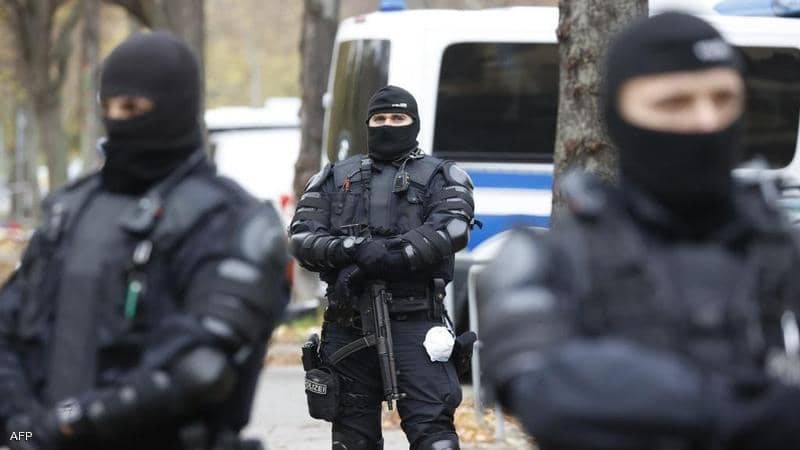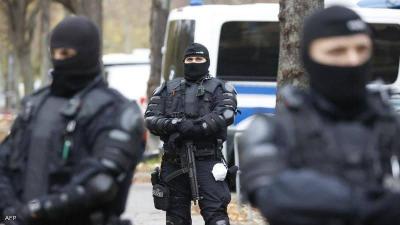The Commissioner for Human Rights of the Council of Europe, Dunja Mijatović, has renewed her call for EU member states to allow the return of their citizens who are members of the ISIS terrorist organization, currently held in detention camps by the Syrian Democratic Forces. The return of ISIS members to European countries poses a significant threat to their security, she states, but there are differing opinions on how to handle these individuals.
**Consensus Against Their Return**
Hazem Said, a researcher at the European Center for Counterterrorism and Intelligence Studies, notes that European policies regarding the return of adult ISIS fighters reveal a near consensus on not repatriating them from conflict zones. European countries have differing policies on the repatriation of their foreign citizens from the camps. He explains to "Sky News Arabia" that some European countries like the Netherlands and Germany have a small number of adult male fighters among those held.
Several governments align with the views of Britain and France in refusing to allow the return of their adult male fighters, advocating for their prosecution in local courts, according to Said.
**Security Threats**
The researcher outlines that the issue of repatriating European ISIS fighters from detention camps in Syria has sparked sharp divisions within European states. Some believe that restoring ISIS fighters will lead to security threats, including the spread of extremism and accelerated radicalization and recruitment for organizing terrorist attacks. Conversely, another group argues that the greater danger lies in leaving ISIS fighters in detention centers, which would act as a ticking time bomb aimed at Europe.
Said points out that the Council of Europe's Human Rights Commissioner has made demands for member states to allow the return of their citizens detained in Syria, amidst objections and criticisms from several European nations, most notably France and the UK.
The British courts have also denied the return of a British woman who joined ISIS in Syria, stripping Shamina Begum of her British citizenship on the grounds of being a security threat. A Swedish court recently sentenced a woman who joined ISIS, along with her child, to three years in prison.
**Why Europe Refuses Their Return**
Said attributes the strict European measures toward their fighters to several factors, including legal challenges, as gathering evidence against foreign fighters from conflict zones is extremely complicated. Additionally, there is no available European legal framework to address criminal proceedings against them.
From an economic standpoint, the costs associated with repatriating foreign fighters are high, particularly concerning monitoring, trials, and reintegration expenses. Politically, there are fears about the far-right exploiting the issue of repatriation and causing losses in parliamentary majorities and electoral votes.
**Paris at the Forefront of Risk**
According to Said, Paris has the highest number of detained women and children. France recovered seven French children at the beginning of 2021. For the first time, German authorities repatriated four children in August 2019. In a significant operation, Belgium repatriated ten children from ISIS fighters and six mothers from the Roj camp in northeastern Syria, taking a unique stance on returning children and mothers.
This is affirmed by the Belgian Prime Minister's statement that he is willing to "do everything" to bring back all Belgian children aged 12 and under, while addressing each mother's case individually. Denmark has also planned to repatriate 19 children aged one to 14, along with three of their mothers.
The European researcher indicates that there are disagreements among European nations regarding the repatriation of more children and their mothers. Some European governments have adopted policies for reintegrating ISIS children into society by separating them from their parents and placing them in nurseries or with relatives. Families have filed lawsuits against France after it refused to repatriate relatives detained in the al-Hawl camp in Syria.
The number of ISIS members in the al-Hawl camp is estimated to be around 10,000 from various nationalities, with approximately 80 French women and 200 children. France has repatriated 35 children without their families, all under the age of ten.
In 2019, the Belgian judiciary revoked the citizenship of 13 individuals for joining ISIS. Last year, France repatriated ten children from Syrian camps, while Belgium brought back three widows of ISIS fighters and six of their children. Finland and Germany also repatriated five women and 18 children, according to the International Centre for the Study of Radicalization at King's College London. Last year, the U.S. vetoed a bill in the UN Security Council regarding the fate of foreign fighters, objecting to its omission of a clause calling for their repatriation to their home countries.




